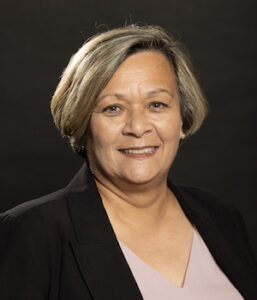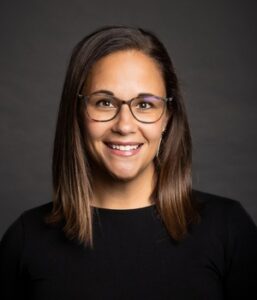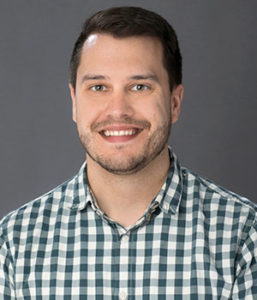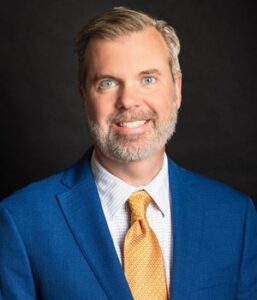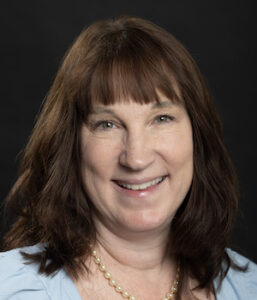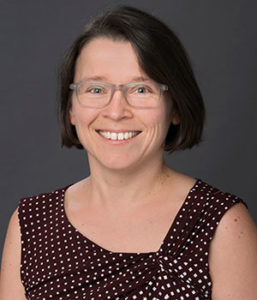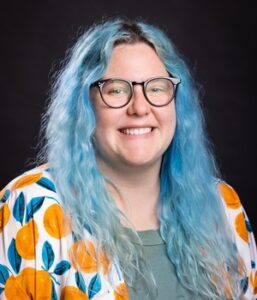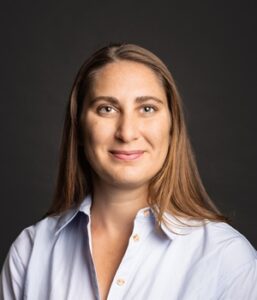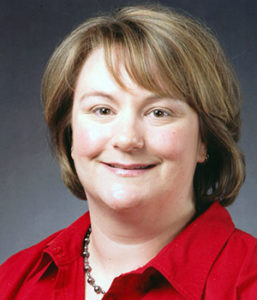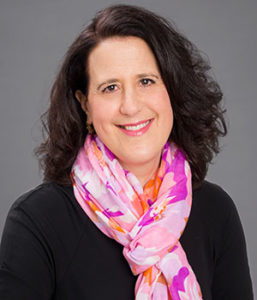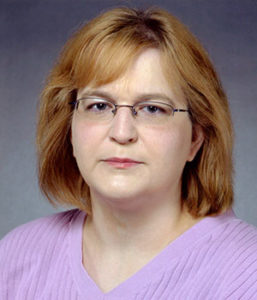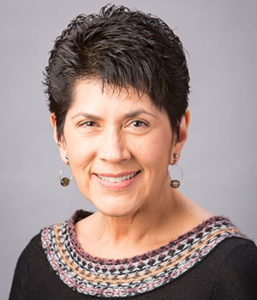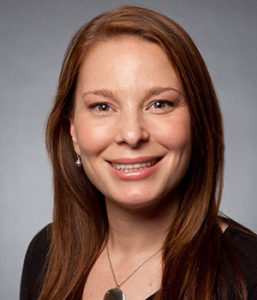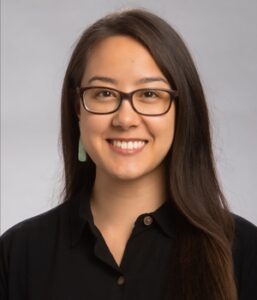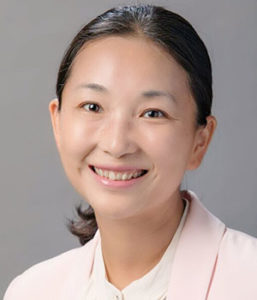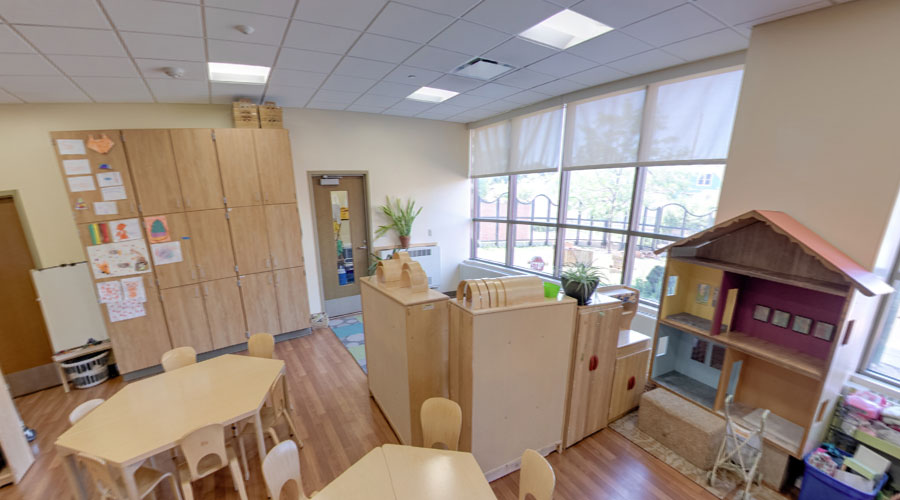Communication Sciences & Disorders BS
Communication Sciences and Disorders is the academic discipline that involves the study of speech, language, communication, and swallowing disorders as well as hearing, balance and related disorders.
The BS Communication Sciences & Disorders program provides the pre-professional foundation for graduate study in speech-language pathology and audiology.
Program Type
Major
Program Format
On Campus
Communication Sciences & Disorders…
When the ability to communicate is disrupted, every aspect of daily living is affected. As a speech-language pathologist or audiologist, your evaluation and treatment helps clients and their families to improve communication skills and cope with the difficulties of communication disorders.
In audiology, you’ll treat hearing loss with hearing aids and assistive listening devices, and be involved in hearing loss prevention and hearing conservation.
In speech-language pathology, you’ll treat conditions, such as stuttering, delayed language development, aphasia, voice and articulation problems, and swallowing disorders.
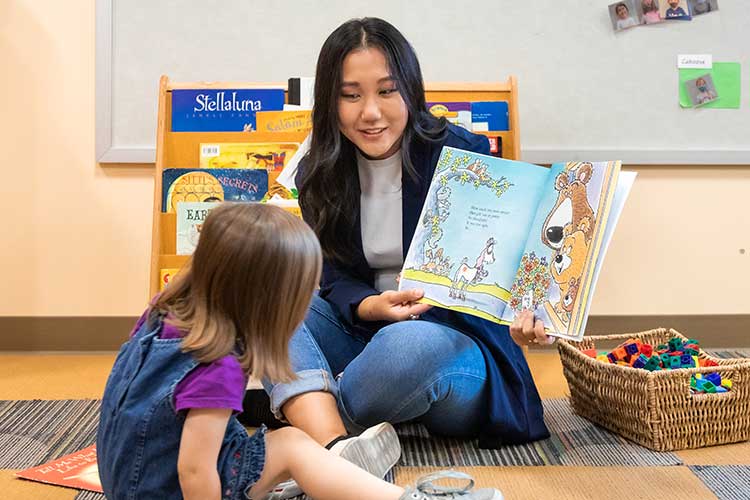
- U.S. News and World Report ranks the College of Health Sciences Communication Sciences and Disorders program within the top half of all nationally-ranked programs.
- You will get hands-on experience through our active student organization that connects with leaders and professionals in the field through educational and networking opportunities.
- You will have the opportunity to conduct pioneering research with program faculty.
Employment Outlook
Earnings
According to the U.S. Bureau of Labor Statistics, the median annual wage for speech-language pathologists was $89,290 in May 2023.
ASHA’s SLP Health Care 2023 Survey (PDF) reported a median annual salary in 2023 of $87,000 for speech-language pathologists employed in medical and nursing-related facilities.
ASHA’s SLP Schools Survey 2022 (PDF) reported a median 9-10 month salary of $69,000, and a median 11-12 month salary of $80,000 for speech-language pathologists employed in school-based settings.
Expected Growth
Employment of speech-language pathologists is projected to grow 19% from 2022 to 2032, much faster than the average for all occupations.
Sources: Bureau of Labor Statistics, U.S. Department of Labor, Occupational Outlook Handbook, Speech-Language Pathologists ; Bureau of Labor Statistics, U.S. Department of Labor, Occupational Outlook Handbook, Audiologists .
Successful Alumni
The School of Rehabilitation Sciences & Technology has many successful alumni. These alumni have taken their Athletic Training, Communication Sciences & Disorders, Occupational Therapy, Sciences & Technology and Physical Therapy educations and have excelled in their careers.
Visit our Alumni page and be inspired by where a health sciences degree can take you.
Related Programs
The BS Communication Sciences & Disorders program provides the pre-professional foundation for graduate study.
A career as a speech-language pathologist requires a master’s degree. The UWM MS Communication Sciences & Disorders program is accredited by the Council on Academic Accreditation in Audiology and Speech-Language Pathology of the American Speech-Language-Hearing Association (ASHA) in Speech-Language Pathology. The Wisconsin Department of Public Instruction also has approved the undergraduate/graduate program in communication sciences and disorders.
A career as an audiologist requires a doctoral degree (AuD or Doctor of Audiology). In Wisconsin, an AuD consortial program is offered by UW-Madison and UW-Stevens Point.
The following courses are prerequisites for admission to the major:
- A minimum cumulative UWM GPA of 2.750.
- A minimum GPA of 3.00 in COMSDIS 220, 230 and 240, earned the first time.
- Completion of 58 credits.
- Completion of UWM’s GER for Oral and Written Communication – Part A competency.
- Completion of UWM’s GER for Quantitative Literacy – Part A competency.
- Completion of an application (PDF) for admission to the major.
- Endorsement by the program coordinator of your application.
You will receive written notice of the admission decision. A meeting with your advisor to discuss the program of study is required immediately following admission to the major.
Appeal Procedures
- If you are refused admission to the major, you may appeal the decision by writing to the department chairperson and enumerating the reasons you believe your case is exceptional and merits additional consideration.
- If possible, the appeal should be accompanied by written support from one or more of the faculty, and should include documentation of any extenuating circumstances cited in support of the appeal.
- A committee composed of the entire faculty of the Department of Communication Sciences and Disorders will consider your appeal for admission to the major.
- You are notified in writing of the faculty’s decision concerning the appeal.
120 credits are required for the Communication Sciences & Disorders major.
General Education Requirements (GERs)
Electives should be used to meet general education requirements.
Freshman Year
First Semester
| Course Number | Course Name | Credits |
|---|---|---|
| BIO SCI 202 | Anatomy & Physiology I | 4 |
| COMSDIS 210 | Survey of Communicative Disorders | 3 |
| HS 222 | Language of Medicine | 3 |
| CHS 100 | New Student Seminar in Health Professions | 1 |
| Elective | 2 | |
| Total Credits | 13 |
Second Semester
| Course Number | Course Name | Credits |
|---|---|---|
| ANTHRO 102 or SOC 101 | Intro to Anthro: Culture and Society | 3 |
| PSYCH 101 | Introduction to Psychology | 3 |
| BIOSCI 203 | Anatomy & Physiology II | 4 |
| Electives | 4 | |
| Total Credits | 14 |
Sophomore Year
First Semester
| Course Number | Course Name | Credits |
|---|---|---|
| ENGLISH 205 OR ENGLISH 207 | Business Writing Health Sciences Writing | 3 |
| COMSDIS 230 | Introduction to Phonetics* | 4 |
| COMSDIS 250 | Interprofessional Communication in the Health Sciences | 3 |
| PHYS 120 | General Physics I (Non-Calculus Treatment) | 4 |
| HS 102 | Healthcare Delivery in the US | 3 |
| Total Credits | 17 |
Second Semester
| Course Number | Course Name | Credits |
|---|---|---|
| PSYCH 260 | Child Psychology | 3 |
| COMSDIS 220 | Anatomy and Physiology of Speech Language and Hearing Mechanisms* | 4 |
| COMSDIS 240 | Normal Speech and Language Development* | 3 |
| COMSDIS 245 | Client Diversity in Health Sciences | 3 |
| ED POL 375 | Cultural Foundations of Education | 3 |
| Total Credits | 16 |
Junior Year
First Semester
| Course Number | Course Name | Credits |
|---|---|---|
| COMSDIS 350 | Clinical Process I: Articulation & Phonology Disorders** | 3 |
| COMSDIS 380 | Bases of Hearing Science** | 3 |
| LING 350 | Introduction to Linguistics | 3 |
| KIN 270 | Statistics in the Health Professions | 3 |
| Electives | 3 | |
| Total Credits | 15 |
Second Semester
| Course Number | Course Name | Credits |
|---|---|---|
| COMSDIS 351 | Clinical Processes II: Child Language Disorders** | 3 |
| COMSDIS 450 | Bases of Fluency and Voice Disorders** | 3 |
| HCA 203 | Human Life Cycle | 3 |
| ED PSYCH 330 | Introduction to Learning and Development | 3 |
| HIST 263 OR AIS 203 OR ACT 31 | North American Indian History Since 1887 Workshop | 3 |
| Total Credits | 15 |
Senior Year
First Semester
| Course Number | Course Name | Credits |
|---|---|---|
| COMSDIS 460 | Survey of Adult Neurogenic Language and Speech Disorders** | 3 |
| COMSDIS 470 | Introduction to Audiology** | 3 |
| EXCEDUC 600 OR EXCEDUC 300 | Survey of Exceptional Eduction The Exceptional Individual | 3 |
| Electives | 6 | |
| Total Credits | 15 |
Second Semester
| Course Number | Course Name | Credits |
|---|---|---|
| COMSDIS 480 | Speech Science** | 3 |
| COMSDIS 490 | Aural Rehabilitation** | 3 |
| COMSDIS 520 | Counseling in Communication Sciences & Disorders** | 3 |
| COMSDIS 661 OR CURRINS 537** | The Role of the SLP in Literacy** | 2 |
| Electives | 4 | |
| Total Credits | 15 |
*Course may not be repeated and must have a minimum cumulative GPA of 2.75.
**Course is generally taught only once per year, during the semester listed.
COMSDIS 220, 230, 240 may not be repeated and students must earn a minimum cumulative GPA of 3.00 in these classes for admission to the major.
By completing the following courses included in this curriculum, you have met a subset of the requirements toward Wisconsin Department of Public Instruction for School Certification in Speech-Language Pathology: ED POL 375 (or ED POL 500 or ED POL 530), ED PSY 330, COMSDIS 661 (or CURRINS 343), EXCEDUC 300 (or EXCEDUC 600), and HIST 263 (or AIS 203, or Act 31 – 1 Day Workshop).
To schedule an advising appointment, call 414-229-2758 or visit Northwest Quadrant Building B, Room 6425.
You are also encouraged to meet with a Department of Communication Sciences and Disorders faculty member to discuss the requirements and challenges of a career as a speech-language pathologist or audiologist. Seniors should meet with your advisor to review your final year of study and discuss opportunities for graduate study.
You can also contact your advisor in your student center in PAWS.
When should I meet with my advisor?
You are encouraged to meet with your advisor at least once per semester to ensure timely progress to graduation.
- Enrolling for spring semester?
Schedule an appointment with your advisor in October or November. - Enrolling for fall semester?
Schedule an appointment with your advisor in March or April.
You are also welcome to schedule an appointment with your advisor at any time to discuss academic challenges, career opportunities or any other questions.
How can my advisor help me?
The College of Health Sciences boasts professional academic advisors who understand the challenges of balancing academics, work, family and the social aspects of college life. Advisors partner with you to:
- Explore your academic and career interests
- Plan the sequence of your courses
- Prepare for course enrollment
- Access tutoring and other academic support
- Identify opportunities for campus involvement
- Connect you to campus resources
- Plan for graduation
- Clinical Assistant Professor, Communication Sciences & Disorders
- behrman@uwm.edu
- Enderis Hall 867
- Clinical Associate Professor, Communication Sciences & Disorders
- Director of Clinical Education, Communication Sciences & Disorders
- belterem@uwm.edu
- 414-251-8293
- Enderis Hall 857
- Clinical Assistant Professor, Communication Sciences & Disorders
- afollmer@uwm.edu
- 414-251-6987
- Enderis Hall 885
- Professor, Communication Sciences & Disorders
- heilmanj@uwm.edu
- 414-229-4625
- Enderis Hall 875
- Clinical Associate Professor, Communication Sciences & Disorders
- dmhennes@uwm.edu
- 414-251-9433
- Enderis Hall 871
- Associate Professor, Communication Sciences & Disorders
- Program Director, Communication Sciences & Disorders
- heuer@uwm.edu
- 414-251-6174
- Enderis Hall 859
- Academic Advisor, Rehabilitation Sciences & Technology
- mlkougl@uwm.edu
- 414-227-5047
- Cunningham Hall 135
- Clinical Assistant Professor, Communication Sciences & Disorders
- kl@uwm.edu
- 414-251-9194
- Enderis Hall 859
- Associate Professor, Communication Sciences & Disorders
- Director, Communication Sciences & Disorders Graduate Program
- sklund@uwm.edu
- 414-229-6465
- Enderis Hall 855
- Clinical Associate Professor, Communication Sciences & Disorders
- mazurcza@uwm.edu
- 414-251-7293
- Enderis Hall 869
- Medical Program Associate, Communication Sciences & Disorders
- krmorgan@uwm.edu
- 414-251-6316
- Enderis Hall 864
- Associate Professor, Communication Sciences & Disorders
- Undergraduate Program Coordinator, Communication Sciences & Disorders
- pauloski@uwm.edu
- 414-229-6719
- Enderis Hall 845
- Senior Clinical Audiologist, Communication Sciences & Disorders
- ryanst@uwm.edu
- 414-607-0910
- UW-Milwaukee Audiology Group
- Administrative Assistant II, Communication Sciences & Disorders
- taylo528@uwm.edu
- 414-251-5659
- Enderis Hall 865
- Associate Professor, Communication Sciences & Disorders
- jyang888@uwm.edu
- 414-251-8161
- Enderis Hall 873

